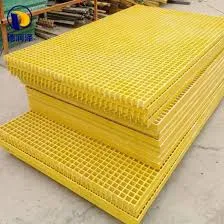
-
 Afrikaans
Afrikaans -
 Albanian
Albanian -
 Amharic
Amharic -
 Arabic
Arabic -
 Armenian
Armenian -
 Azerbaijani
Azerbaijani -
 Basque
Basque -
 Belarusian
Belarusian -
 Bengali
Bengali -
 Bosnian
Bosnian -
 Bulgarian
Bulgarian -
 Catalan
Catalan -
 Cebuano
Cebuano -
 China
China -
 China (Taiwan)
China (Taiwan) -
 Corsican
Corsican -
 Croatian
Croatian -
 Czech
Czech -
 Danish
Danish -
 Dutch
Dutch -
 English
English -
 Esperanto
Esperanto -
 Estonian
Estonian -
 Finnish
Finnish -
 French
French -
 Frisian
Frisian -
 Galician
Galician -
 Georgian
Georgian -
 German
German -
 Greek
Greek -
 Gujarati
Gujarati -
 Haitian Creole
Haitian Creole -
 hausa
hausa -
 hawaiian
hawaiian -
 Hebrew
Hebrew -
 Hindi
Hindi -
 Miao
Miao -
 Hungarian
Hungarian -
 Icelandic
Icelandic -
 igbo
igbo -
 Indonesian
Indonesian -
 irish
irish -
 Italian
Italian -
 Japanese
Japanese -
 Javanese
Javanese -
 Kannada
Kannada -
 kazakh
kazakh -
 Khmer
Khmer -
 Rwandese
Rwandese -
 Korean
Korean -
 Kurdish
Kurdish -
 Kyrgyz
Kyrgyz -
 Lao
Lao -
 Latin
Latin -
 Latvian
Latvian -
 Lithuanian
Lithuanian -
 Luxembourgish
Luxembourgish -
 Macedonian
Macedonian -
 Malgashi
Malgashi -
 Malay
Malay -
 Malayalam
Malayalam -
 Maltese
Maltese -
 Maori
Maori -
 Marathi
Marathi -
 Mongolian
Mongolian -
 Myanmar
Myanmar -
 Nepali
Nepali -
 Norwegian
Norwegian -
 Norwegian
Norwegian -
 Occitan
Occitan -
 Pashto
Pashto -
 Persian
Persian -
 Polish
Polish -
 Portuguese
Portuguese -
 Punjabi
Punjabi -
 Romanian
Romanian -
 Russian
Russian -
 Samoan
Samoan -
 Scottish Gaelic
Scottish Gaelic -
 Serbian
Serbian -
 Sesotho
Sesotho -
 Shona
Shona -
 Sindhi
Sindhi -
 Sinhala
Sinhala -
 Slovak
Slovak -
 Slovenian
Slovenian -
 Somali
Somali -
 Spanish
Spanish -
 Sundanese
Sundanese -
 Swahili
Swahili -
 Swedish
Swedish -
 Tagalog
Tagalog -
 Tajik
Tajik -
 Tamil
Tamil -
 Tatar
Tatar -
 Telugu
Telugu -
 Thai
Thai -
 Turkish
Turkish -
 Turkmen
Turkmen -
 Ukrainian
Ukrainian -
 Urdu
Urdu -
 Uighur
Uighur -
 Uzbek
Uzbek -
 Vietnamese
Vietnamese -
 Welsh
Welsh -
 Bantu
Bantu -
 Yiddish
Yiddish -
 Yoruba
Yoruba -
 Zulu
Zulu
Applications and Benefits of Reinforced Plastic Pipes in Modern Construction and Infrastructure Projects
Reinforced Plastic Pipe A Modern Solution for Various Applications
Reinforced plastic pipe (RPP) is gaining recognition across various industries due to its unique combination of strength, lightweight nature, and corrosion resistance. This modern piping solution integrates the benefits of traditional materials with advanced plastic technology, making it an ideal choice for a wide array of applications, from construction and infrastructure to water supply systems and chemical transportation.
Composition and Advantages of Reinforced Plastic Pipe
RPP typically consists of a core made from durable thermoplastics, such as polyvinyl chloride (PVC) or polyethylene (PE), reinforced with layers of composite materials like fiberglass or aramid fibers. This composite structure enhances its mechanical properties significantly. The unique reinforcement adds rigidity and tensile strength, allowing the pipe to withstand high pressures and resist deformation.
One of the primary advantages of RPP is its lightweight nature. Compared to traditional metal pipes, RPP is significantly lighter, making transportation and installation easier and more cost-effective. This feature is especially beneficial in situations where heavy machinery is not available, or where access to the installation site is limited.
Additionally, RPP exhibits excellent corrosion resistance. Unlike steel or iron pipes that are susceptible to rust and deterioration, reinforced plastic pipes maintain their integrity when exposed to various chemicals and environmental conditions. This characteristic is crucial for industries that involve the transportation of aggressive fluids, such as the chemical, oil, and gas sectors.
Applications of Reinforced Plastic Pipe
reinforced plastic pipe

The versatility of reinforced plastic pipes makes them suitable for a myriad of applications. In the construction industry, RPP is often used for drainage systems, stormwater management, and sewage disposal. Its ability to withstand harsh environments makes it an excellent choice for underground installations where protection against corrosion is paramount.
In agricultural sectors, RPP is commonly used for irrigation systems. The lightweight nature of these pipes simplifies transportation and installation, enabling farmers to efficiently distribute water across vast fields. Moreover, the pipes’ resistance to chemicals means they can handle fertilizers and pesticides without degrading over time.
Another significant application is in the water supply and distribution systems. RPP provides a reliable solution for municipalities looking to modernize their aging infrastructure. With its resistance to scaling and biofilm growth, RPP enhances water quality and reduces maintenance costs associated with clogging in traditional piping systems. Additionally, the smooth interior surface of reinforced plastic pipes minimizes friction loss, leading to increased flow efficiency.
Environmental Impact and Sustainability
The production of reinforced plastic pipes also aligns with growing sustainability goals. Many manufacturers are adopting eco-friendly practices, utilizing recycled materials in the production of RPP, and developing processes that reduce energy consumption. Furthermore, the longevity and durability of these pipes lead to less frequent replacements, reducing waste and conserving resources over time.
Conclusion
Reinforced plastic pipes represent a significant advancement in pipe technology, offering a compelling alternative to traditional materials. Their combination of strength, lightweight design, and corrosion resistance positions them as a preferred choice across multiple industries. As the demand for durable and efficient piping solutions grows, reinforced plastic pipes are set to play an essential role in shaping the future of construction, agriculture, and infrastructure development. The shift towards more sustainable practices also reinforces the relevance of RPP as industries seek to minimize their environmental footprint while maximizing performance and efficiency.
Latest news
-
High-Quality Fiberglass Car Bodies Durable GRP Car & Boat Body SolutionsNewsJul.08,2025
-
High-Quality Fiberglass Dual Lamination Product Manufacturer Durable FRP & GRP Dual Lamination SolutionsNewsJul.08,2025
-
Rectangular Tank with Dimensions for GRP Calculation Custom Fiberglass GRP Rectangular TanksNewsJul.07,2025
-
High-Quality Fiberglass Weir Custom FRP Weir & Fiberglass Tanks ManufacturerNewsJul.07,2025
-
CPVC FRP Pipe A Reliable Choice for Industrial Applications High Strength & Corrosion ResistanceNewsJul.07,2025
-
Fiberglass Scrubber for Effective Cleaning and Stain Removal – Superior Performance in Various ApplicationsNewsJul.06,2025









